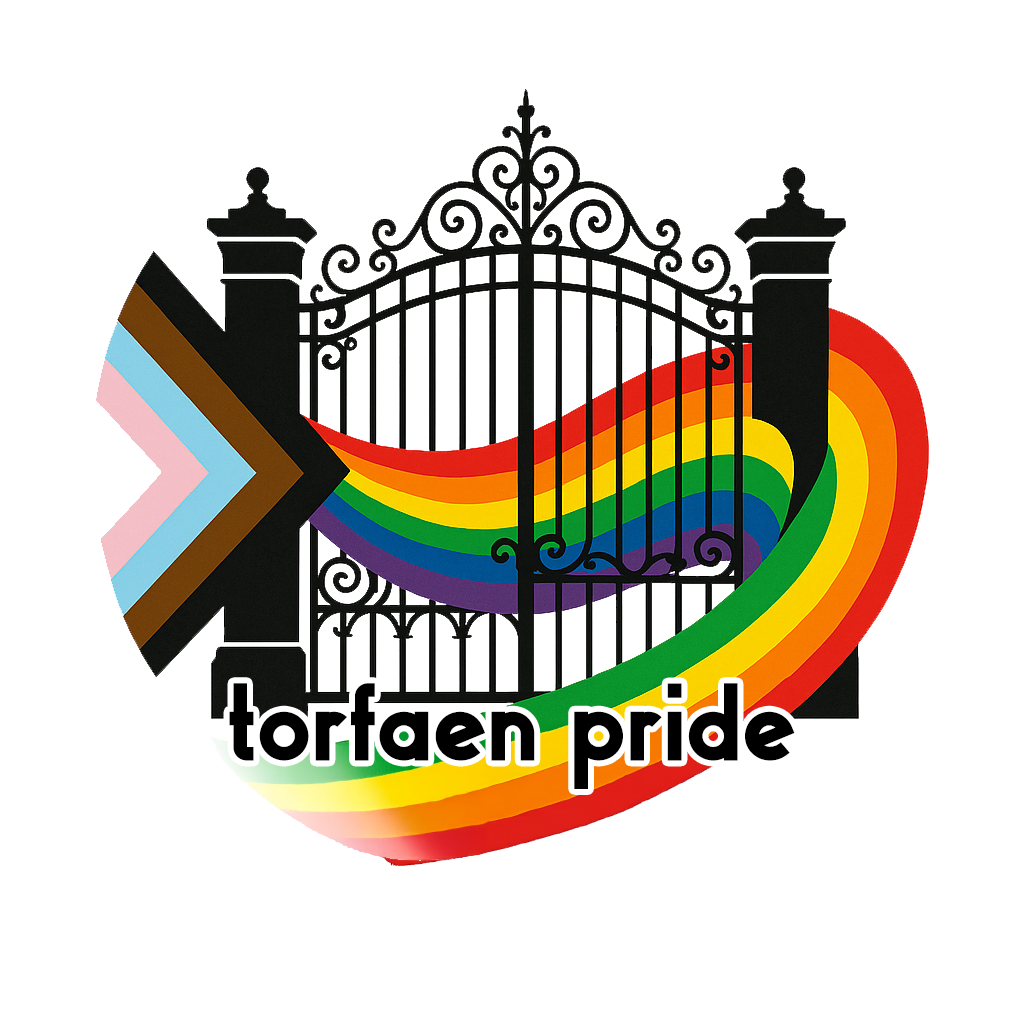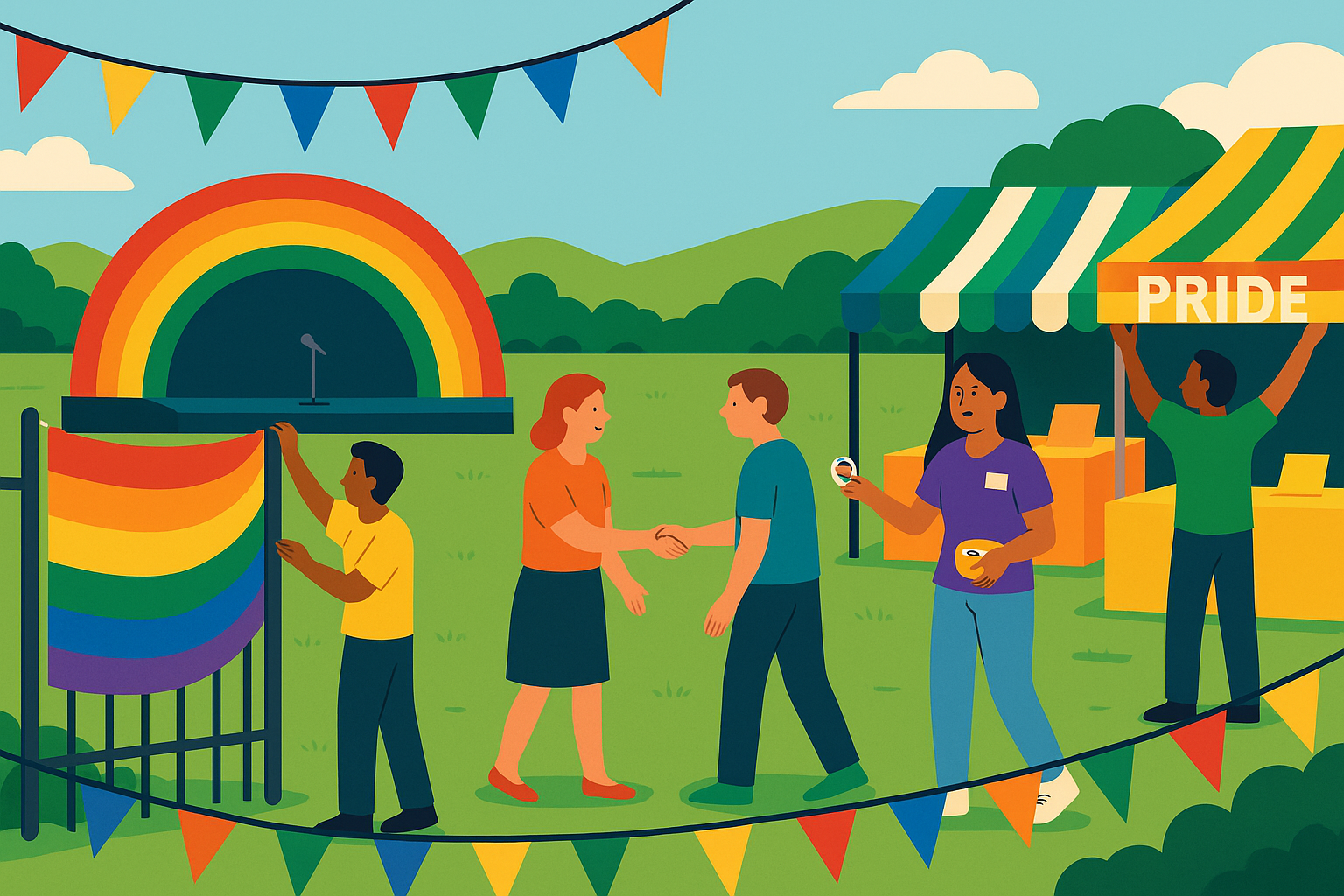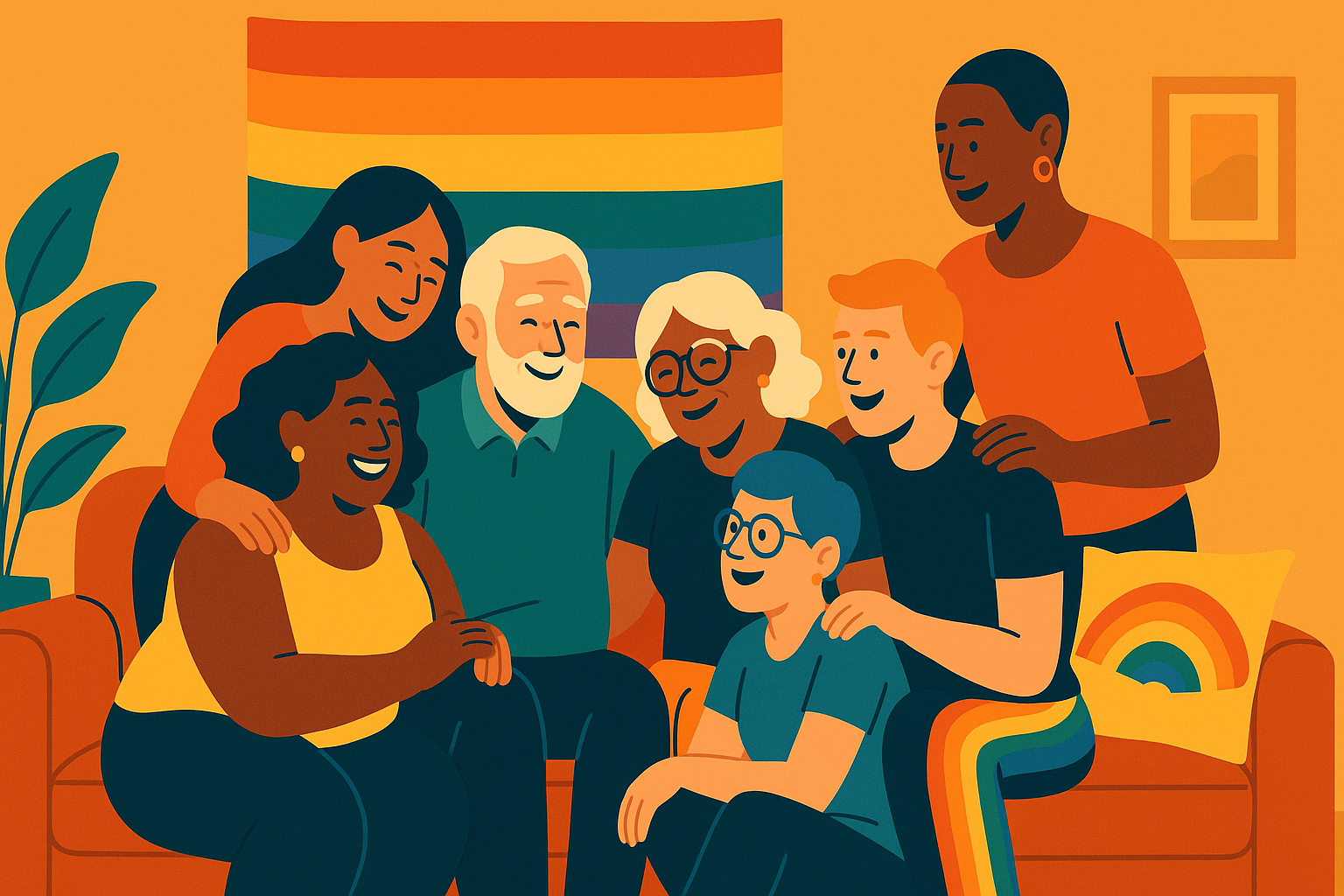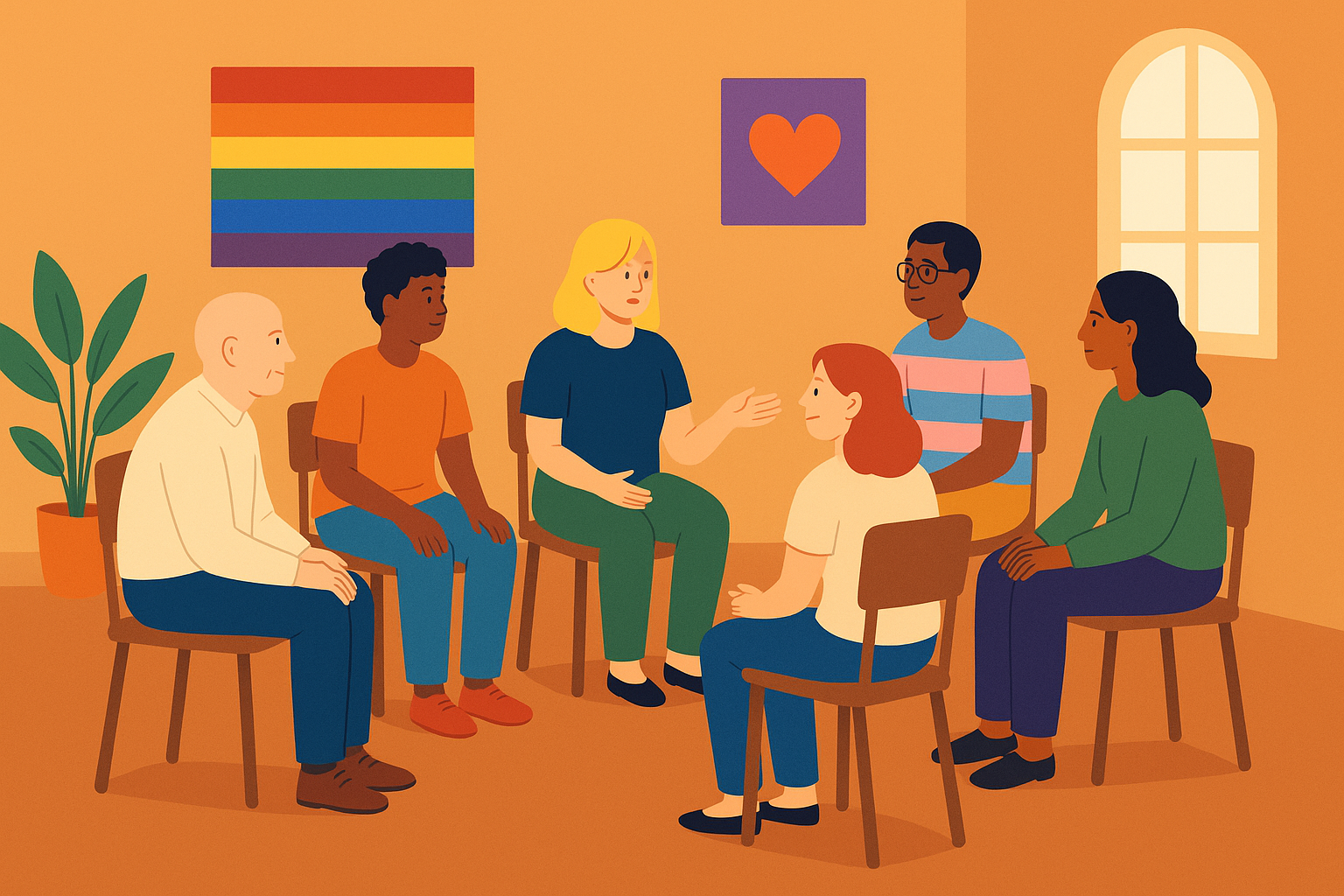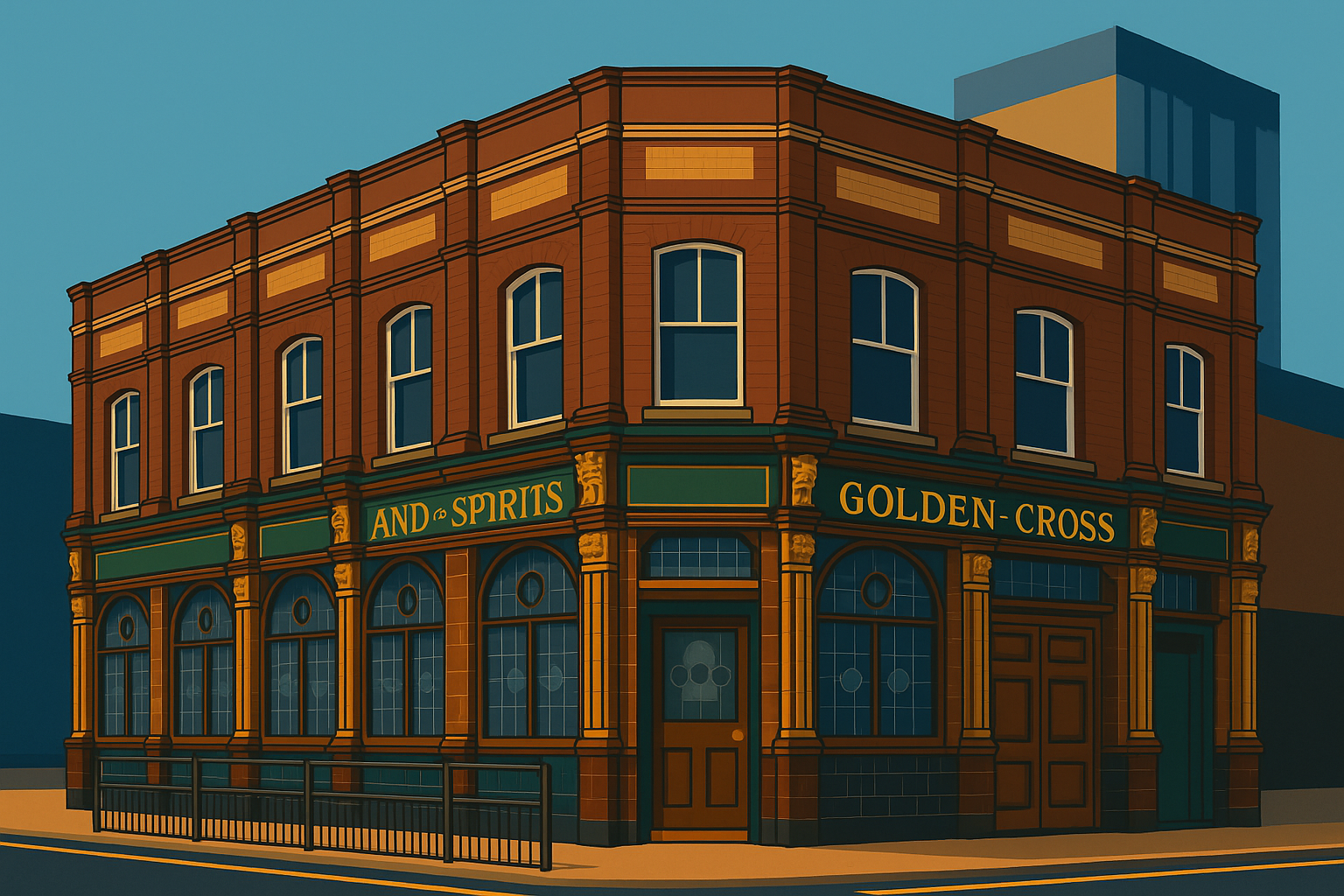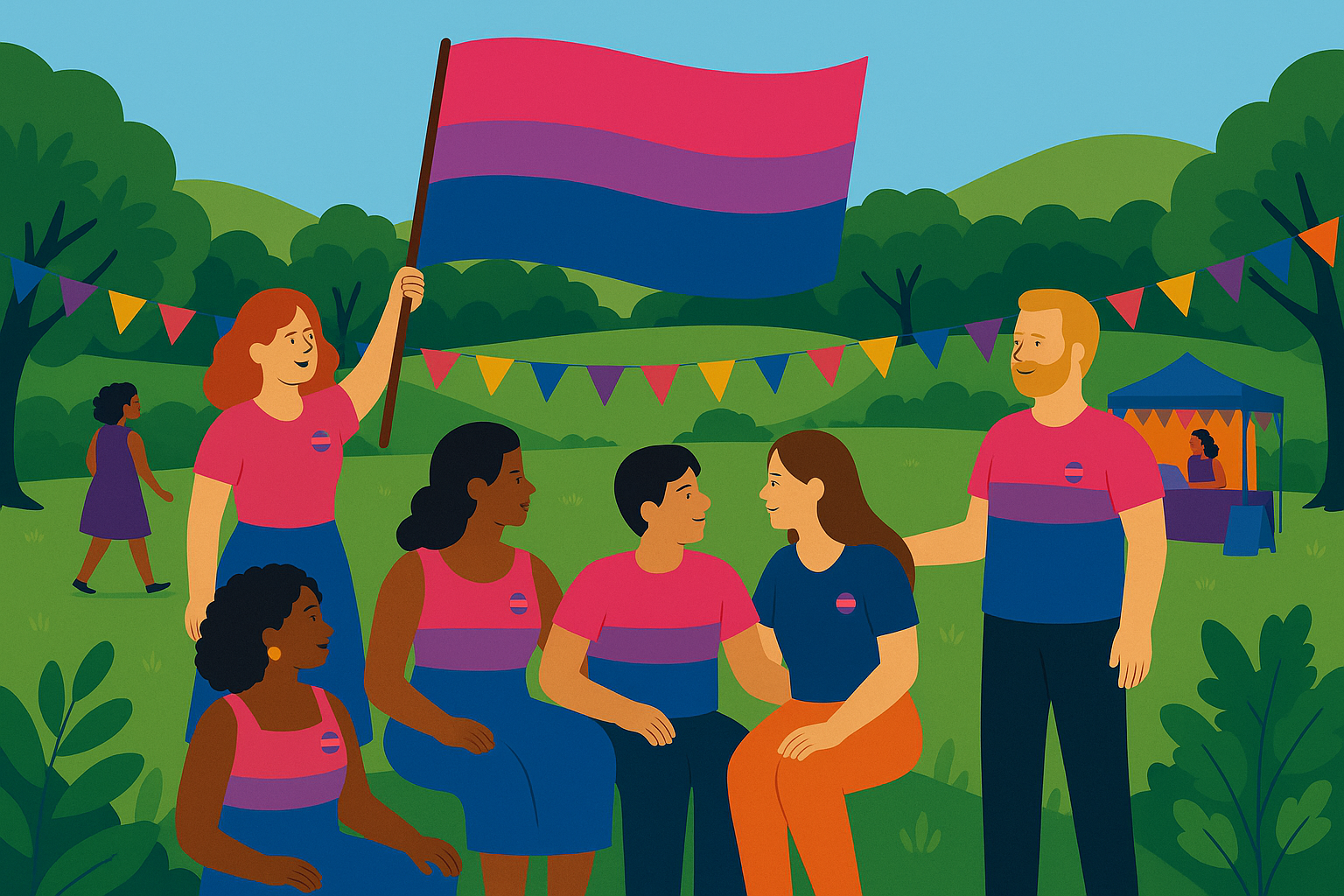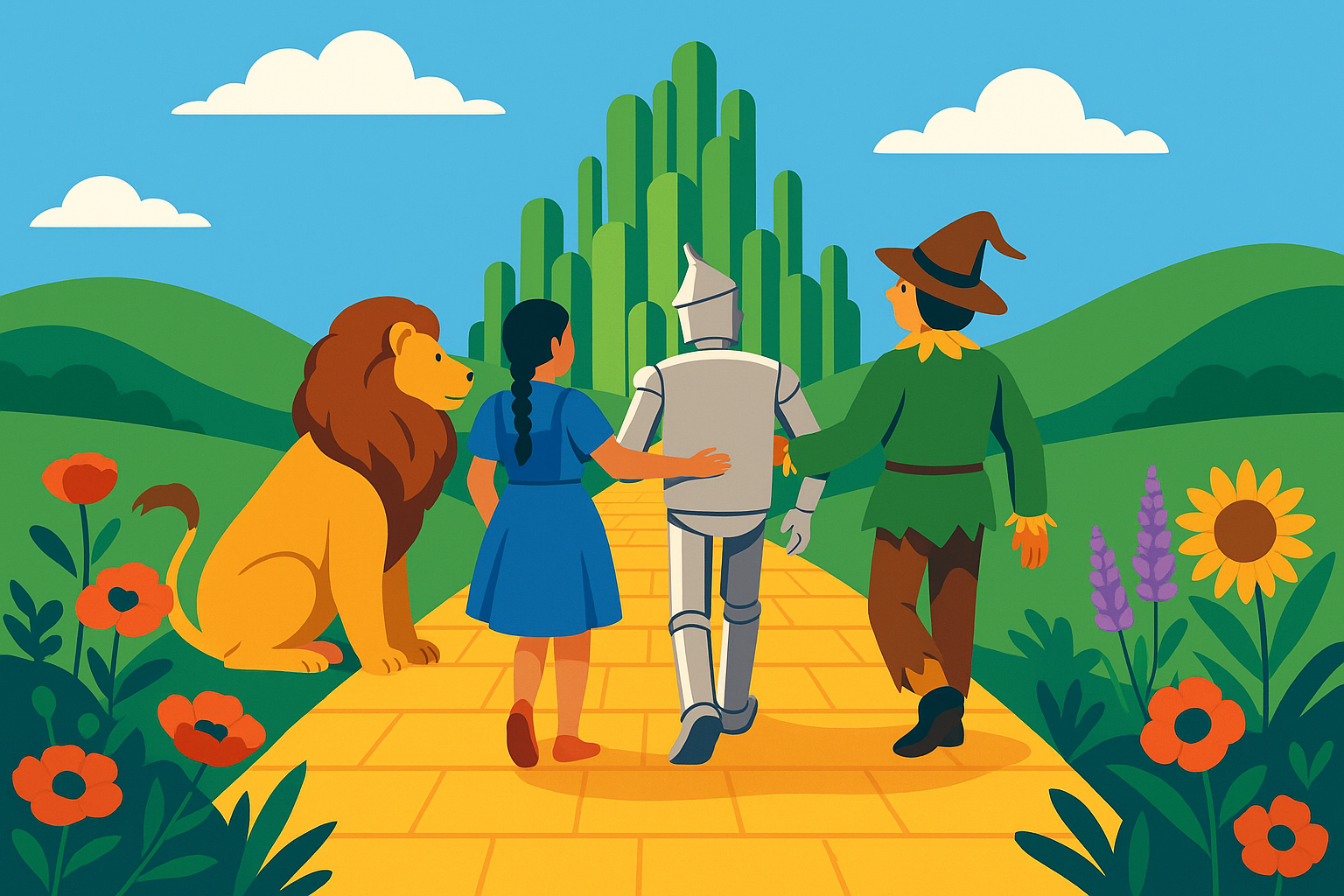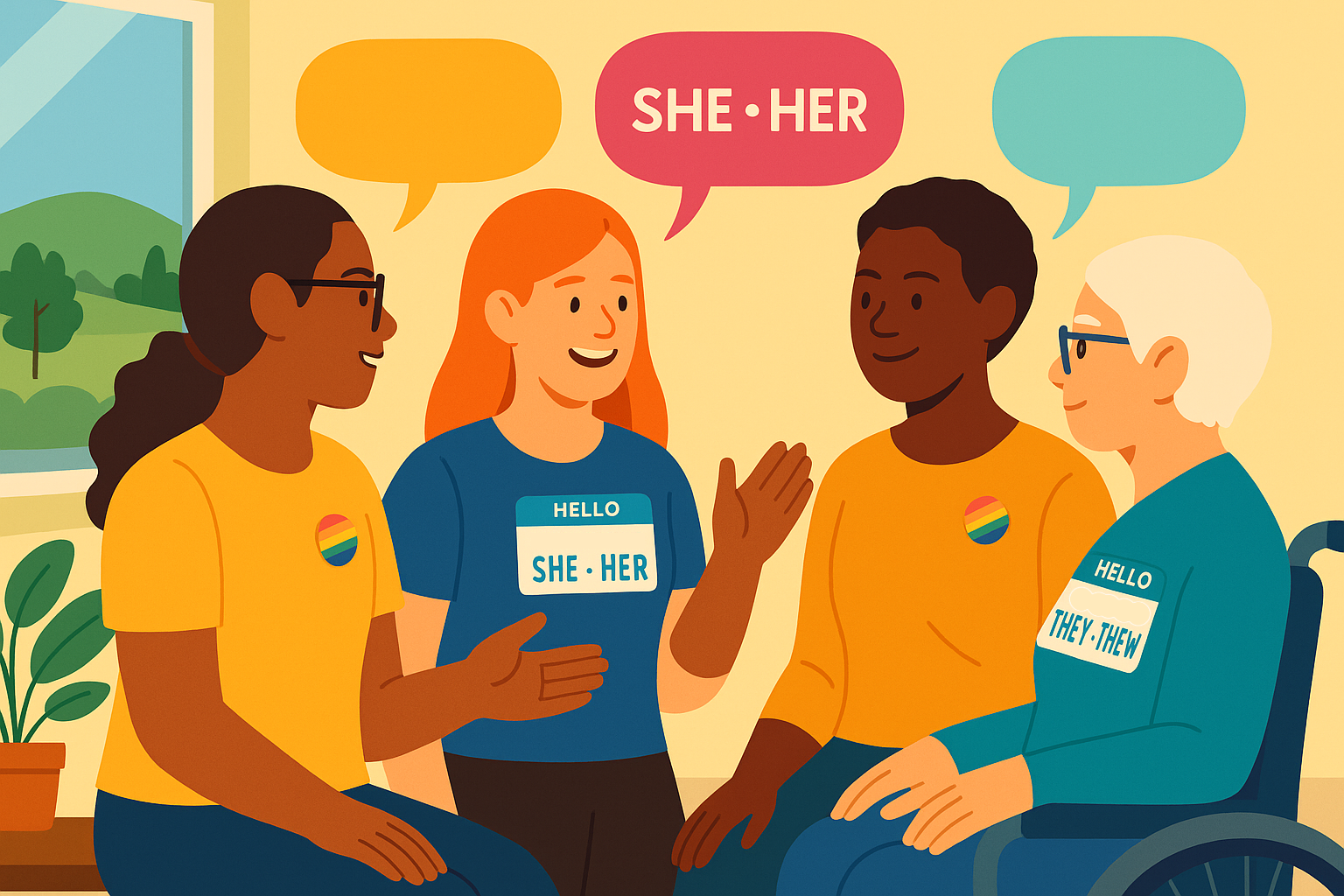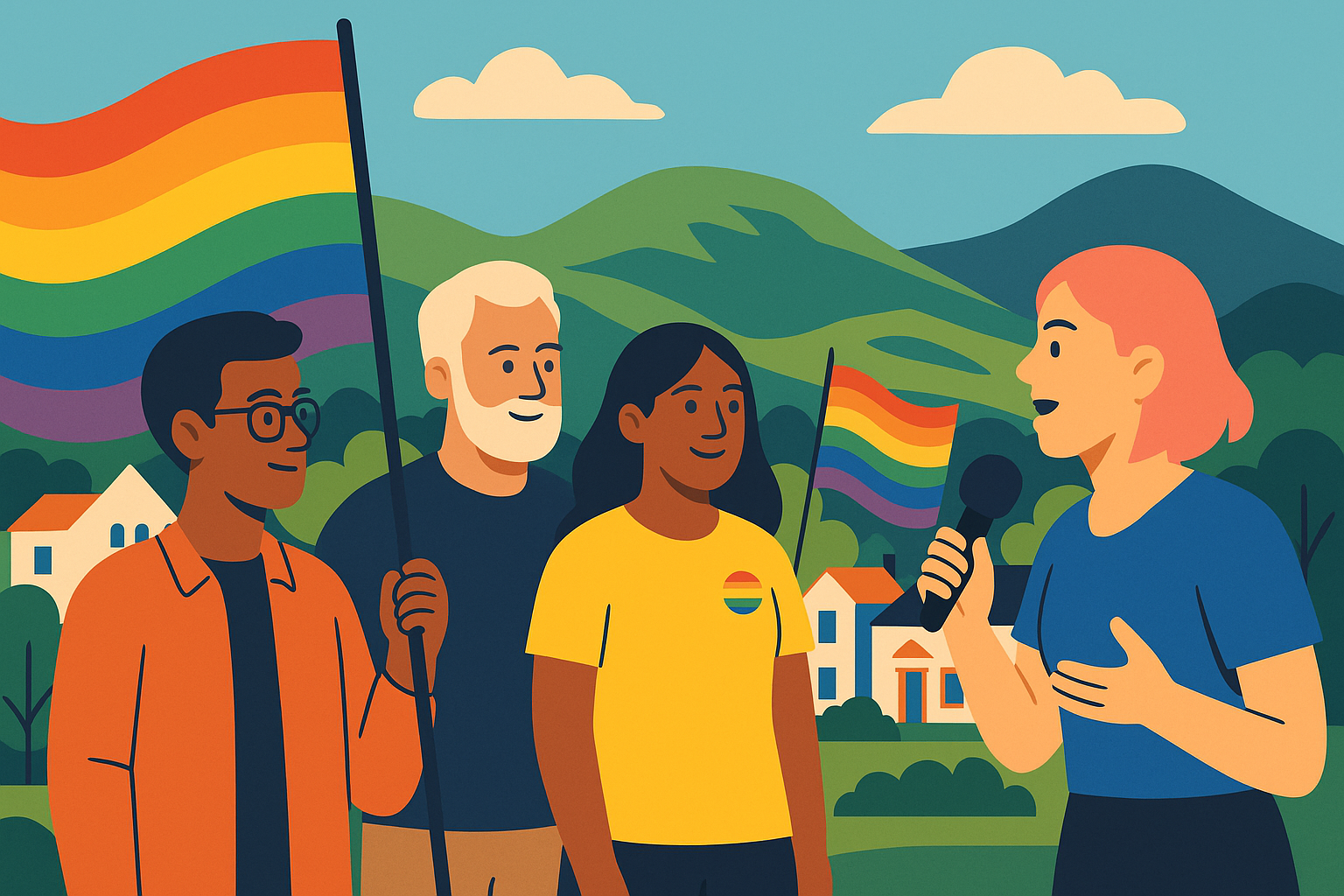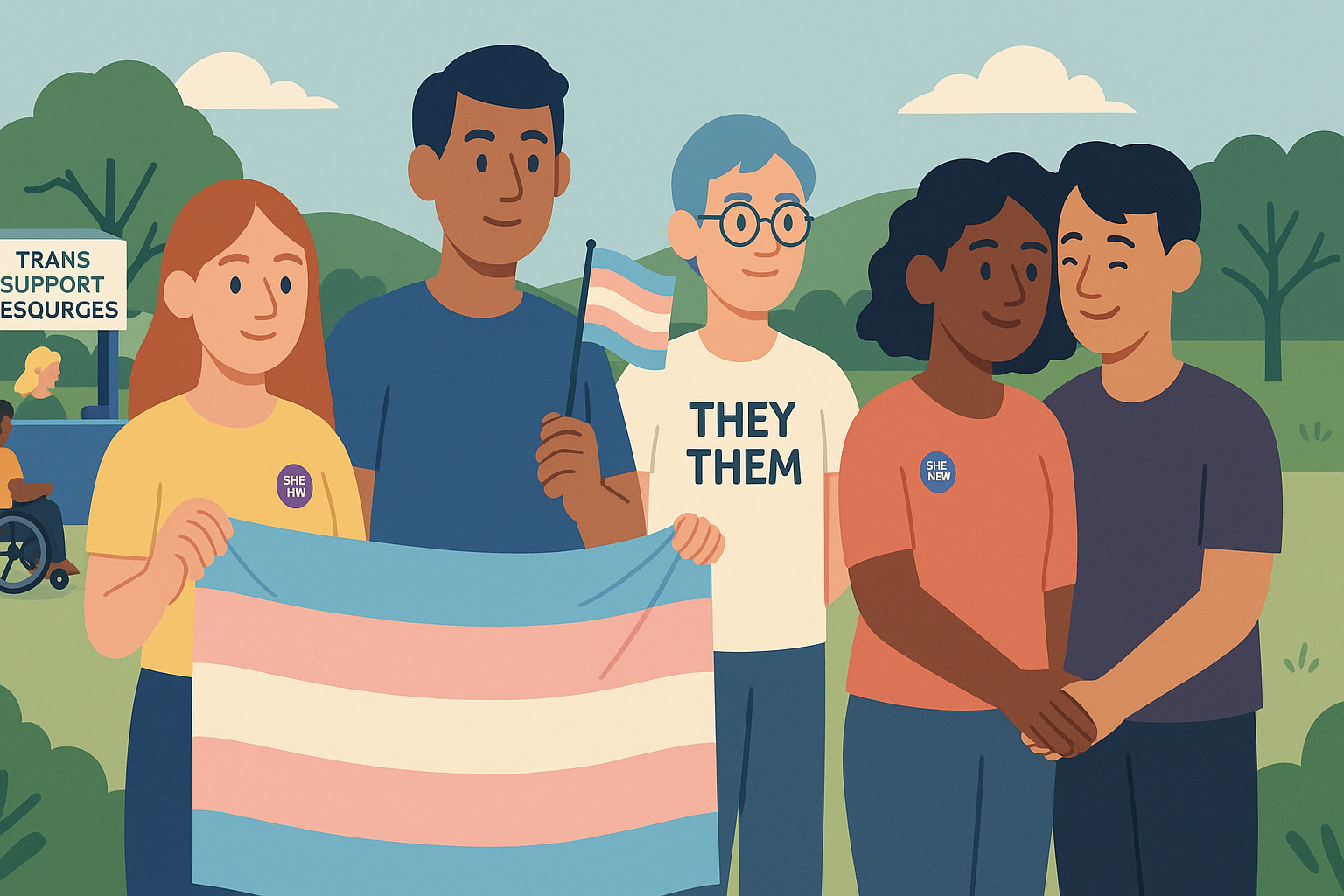The History of Pride in Wales
The History of Pride in Wales
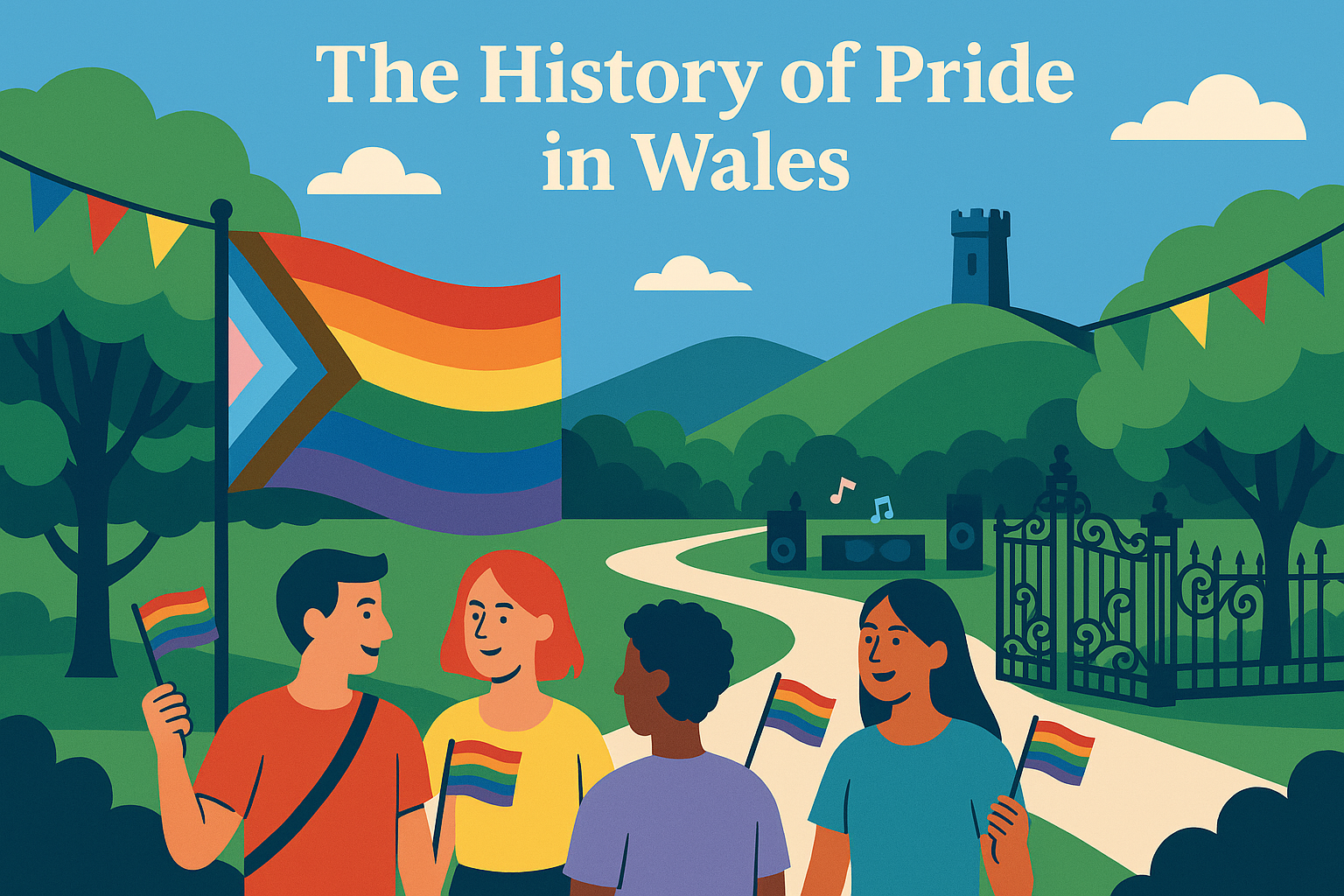
Pride in Wales has a rich and deeply emotional history—one that continues to unfold across the hills, valleys, cities, and towns of our nation. While many associate Pride with glitter, parades, and parties, its story in Wales is about resilience, representation, and the quiet but powerful progress made in everyday communities.
Over the decades, Wales has seen a transformation from underground meetups and whispered alliances to public celebrations like Pride Cymru in Cardiff and now newer events like Torfaen Pride. This blog post traces the history of Pride Wales and highlights the growing legacy of grassroots-led movements like Club F.O.D Cymru, who continue to shape a future where every LGBT+ person feels included, seen, and safe.
Early Beginnings in Cardiff
The earliest records of public LGBTQ+ demonstration in Wales trace back to Cardiff in the mid-1980s, when small marches were held along Queen Street. These events were led by students and local activists—brave individuals who risked safety and employment to demand visibility and equality. At a time when Section 28 and societal stigma loomed large, these gatherings were acts of protest and hope.
Out of this early momentum, Cardiff Mardi Gras was born in 1999. It quickly gained traction and by 2010, evolved into what we now know as Pride Cymru—a celebration that draws tens of thousands of people each year. From protest to festival, Cardiff’s journey set the foundation for Pride in Wales.
Spreading the Message: Swansea, Wrexham, and the Local Pride Revolution
As confidence grew, the Pride movement extended beyond Cardiff. In 2008, Swansea Pride launched with “Pink in the Park”—a simple yet powerful event that showcased the city’s commitment to inclusivity. It soon developed into a larger weekend of music, stalls, and visibility campaigns.
Elsewhere, towns like Wrexham, Barry, Llantwit Major, and Bridgend began to host their own Pride days, each shaped by their unique local identity. These smaller events reminded us that Pride doesn’t have to be big to be bold. They created space that was both affordable and accessible for LGBTQ+ people who couldn’t or wouldn’t travel to city-centre events, bringing Pride directly into their communities.
The Valleys Speak Up: Queer Histories Unearthed
One of the most exciting developments in recent years has been the uncovering of Wales’s rural queer past. Thanks to Welsh Government support and local volunteers, initiatives like LGBTQ+ Cymru have begun documenting the stories of LGBTQ+ people in the South Wales Valleys.
In Torfaen, this has resulted in the creation of the Gwent LGBTQ+ Timeline, which charts historical moments from the Middle Ages to today. From tales of same-sex couples living together in Merthyr, to stories of Edward II’s relationship with Hugh Despenser, and the impacts of World War II on queer lives—these archives are powerful reminders that LGBTQ+ people have always been here, even if history tried to erase them.
Torfaen Pride: A New Chapter in Pride History
In 2024, a new page was turned with the launch of Torfaen Pride. Held in Pontypool Park, it marked the first ever Pride event in the borough. It was free to attend, fully accessible, family-friendly, and focused entirely on community inclusion.
Unlike larger commercial events, Torfaen Pride was designed to feel personal. There were quiet zones for neurodiverse attendees, community stalls for local groups, a youth support hub, and food vendors serving all dietary needs. Thousands turned out, proving there was a real hunger for connection, celebration, and safe spaces.
The event returned in 2025, even bigger and more inclusive. Now, planning is already underway for 2026—and it’s clear that Torfaen Pride is here to stay.
The Year-Round Impact of Club F.O.D Cymru
Behind Torfaen Pride is Club F.O.D Cymru, a registered charity focused on reducing social isolation for LGBTQ+ people in Wales. Born from the UK-wide Club F.O.D movement, the Cymru branch became fully independent in 2024 with a distinctly Welsh identity and mission.
Their work includes:
- Hosting regular LGBTQ+ nights in areas without regular safe spaces
- Supporting LGBTQ+ youth and mental health through events and befriending programmes
- Attending other Welsh Prides like Merthyr Pride with support and outreach teams
- Planning for a permanent community hub in South East Wales
Club F.O.D Cymru’s philosophy is simple but powerful: No one should feel alone, invisible, or unsupported because of who they are. Through their leadership, Torfaen Pride has become more than an event—it’s the heart of a movement.
Why Rural Pride Events Are Critical
It’s a common misconception that LGBTQ+ people in the UK “have it easy now.” But for those living in rural or semi-rural areas like Torfaen, visibility still comes with risk. Fear of discrimination, lack of local resources, and social isolation remain very real.
That’s why rural Pride events matter. Torfaen Pride is one of the only times each year when LGBTQ+ people in the borough can gather visibly, safely, and joyfully. It offers a lifeline to those who might not otherwise feel seen or heard. It welcomes not only LGBT+ individuals, but also families, carers, young people, and older community members—making it a celebration for everyone.
Preserving the Legacy: Timelines, Archives, and Oral History
In tandem with growing Pride events, projects like “40 Years On” by Pride Cymru are collecting stories from the past four decades of activism and community building. These oral histories are being archived for future generations, ensuring that the movement is never forgotten.
Meanwhile, LGBTQ+ Cymru and local authorities have been working to build timelines that are county-specific, so that every part of Wales—including Gwent and Torfaen—can see their own local queer history reflected. These are now being used in schools, libraries, museums, and even as part of Torfaen Pride’s own educational programme.
The Welsh Identity and Queerness
Wales has a strong sense of cultural identity—defined by its language, music, history, and values of community (cymuned) and resilience. Pride in Wales draws upon this. It’s about more than rainbows; it’s about belonging.
Events like Torfaen Pride reflect Welsh values in action. They are intergenerational, bilingual, and grounded in the everyday realities of working-class communities. They are spaces where you’re just as likely to see grandparents waving flags as you are drag performers on stage. This balance of tradition and transformation is uniquely Welsh—and deeply powerful.
Jamie Says:
“Pride isn’t just a celebration—it’s a reflection of the journey we’ve taken as a community. Here in Torfaen, we’re proud to be adding our own chapter to the history of Pride in Wales. With every event, every conversation, and every act of solidarity, we are making history together.”
Honouring the Past, Building the Future
The History of Pride Wales is still being written. From the protests of the 1980s in Cardiff, to the colourful celebration in Pontypool Park, the spirit of Pride lives on in every town, every story, and every moment of connection.
And while we celebrate how far we’ve come, we know the work isn’t over. Thanks to organisations like Club F.O.D Cymru, the path ahead is full of hope, progress, and pride.
If you’ve ever marched, volunteered, donated, or simply showed up—you’re part of this story. And if you haven’t yet, now’s your moment.
